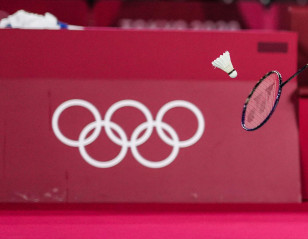
‘France in Good Position to be Top Five in World’
In Part 2 of the interview, France head coach Fernando Rivas dwells on sport science, changes in traditional systems, and working to make France a top-five world power.
Part 1: ‘I’m Not a Slave of Data’
You’ve talked about INSEP ((National Institute of Sport, Expertise and Performance, in Paris) being like ‘Disneyland’, where you have access to various specialists, particularly in sports science. What are the developments in sports science that excite you?
When you have a big team, a coach becomes a manager of people. It’s less about having a big number of players, it’s about making right choices about the right players. My role is managing all the scientific business that every specialist can give to the players. Now there is some research going on about heat training, about how the heart is affecting adaptations. There are different approaches to it. We have developed our own protocol. I think it’s quite successful. But in my view of my role, it’s about asking the right questions to the right specialist, and trying to find solutions through someone’s brain.
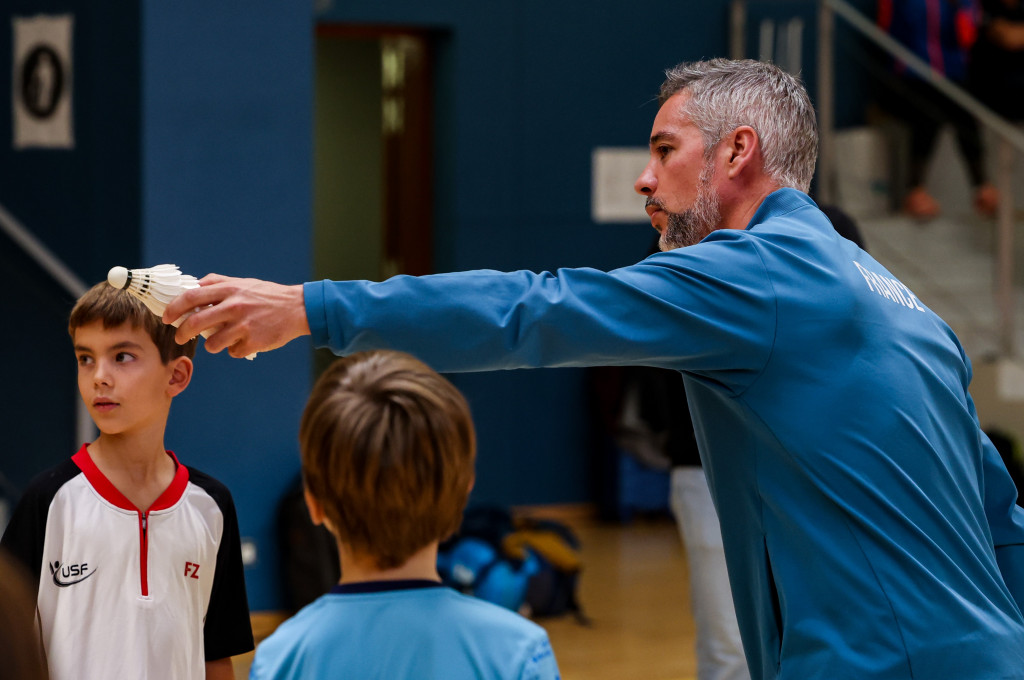
When you look at Asia, the general view is that training systems have remained traditional. Do you sense that it’s changing?
I think it is changing. Some of the countries from Asia that belong to the Commonwealth, there’s a lot of influence from science in the UK, for instance. China has had a Spanish physical trainer for some years. I think people are trying to find new approaches and new ways that have been proven to be working, at least in our case. I feel we have contributed a bit to this little change in the conception of training methods and so on.
So is there a levelling of the field as far as the science is concerned?
I can talk about my experience. We had to learn a lot from ourselves. Because we hadn’t been at the top of the podium, we had to get a lot of inspiration from other sports, from other coaches, from other areas, from other fields of study. As a coach I was very open to learning. The problem is when tradition has been so hard, so strong, and so successful, that you have to question yourself when that tradition is no longer working. I have never been a champion of anything, so I have to find my way. But when you have won everything, like China, for instance, you question yourself — when you have been the champion of everything, it’s not such an easy task. Making a big change when this system has been working for decades is not easy.
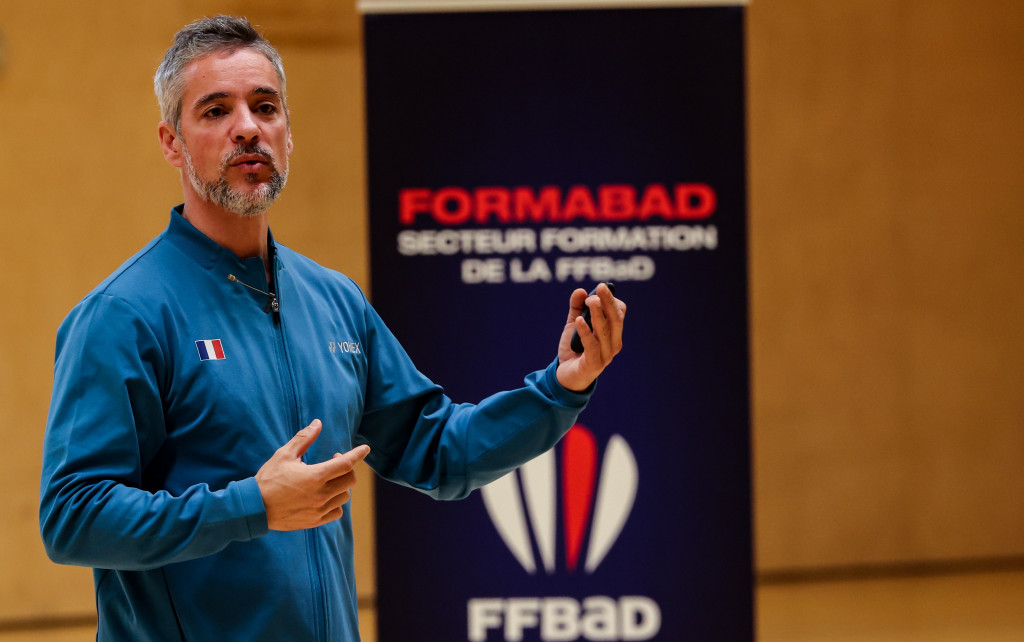
Coming to France, there is now an exciting bunch of players across all categories. How do you see where French badminton is and where it’s heading?
I think France is a powerhouse in Europe. One of my goals is to be competing in Europe against Denmark, in the future. Being on the podium winning European medals is not a surprise for anybody, no big deal. Attacking the world stage is a completely different story. We have good players in every category, but we have some players who can’t perform and win at the present time, maybe we have to manage some part of their training process in a better way and we’re doing so. Some of the events will probably be performing midterm and some others in the long term. What we have to do is just stabilise, to improve coaches’ education, and to base coach education and players pathway development into the tactical category. We hope to continuously update these contents. I think France is in a very good position to be one of the top five, top seven countries in the world.
Paris 2024 must have been one of the goals when you were signed up by France…
We are not afraid of saying we have a mixed doubles pair performing at a very good level. We know that this is the chance we have to perform well in Paris. But for the rest of the categories, we need a little more time. So it’s about setting up the grounding in these two years and going for the results in different events in 2028. But in mixed doubles, we already know we have a chance in 2024 if we work well in the coming two years.
Are there any targets set for Paris 2024?
As many as possible would be a good answer. My view of my job is more based in the process, it’s like the journey has to be comfortable. Imagine that you are in a plane and you can go either in tourist or in business. I’d rather choose business if I can afford it. So this is like trying to make a business-plus process. Which means that of course there will be some turbulence, and some problems that you have to overcome, but at the end of the day, the process is the most important thing. If you have a high-quality process you are not sure that you’re getting medals, but at least you’re ready when the day comes, to be able to fight for the medals. So the message I always say is you have a good process, you fight every day to become a better player, a better coach, then you hold the right to fight for the medals. But… we don’t know. In front of us there is another player who wants also to win. So this is the beauty of our job, not being certain.
Olympic and Paralympic News

‘There’s Much More in Our Tank’ 1 March 2024

Tai Tzu Ying, The Second Coming 29 February 2024

Take Two, with New Mates 15 February 2024

Badminton Venue for Olympics and Paralympics Inaugurated 13 February 2024

Kang & Seo: Showcasing Winning Ability 12 February 2024

Paris Dreaming 8 February 2024

Sprint Begins 7 February 2024

Malaysia Open: ‘Anything is Possible’ 10 January 2024

In the League of Greats 7 January 2024

Malaysian Duo Look to Build on Gains from Last Season 6 January 2024

Game for Friendly Fight 5 January 2024

Gilmour: Grit and Grace on the Road to Paris 2024 4 January 2024

Season Preview: Towards Paris 2024 2 January 2024

Dubai Para: ‘My Shots Were Perfect’ 13 December 2023

Dubai Para: Monteiro Focused on Meticulous Planning 12 December 2023

BWF Presents Super Smash Squad: Unleashing Badminton Heroes 25 October 2023

Naraoka, An Se Young Lead Race to Paris 4 August 2023

Paris 2024: With a Year to Go, Festive Spirit Pervades 26 July 2023

Badminton Lets Pu Gui Yu Enjoy the World 20 July 2023

Two Olympic Champs Aiding Weng’s Growth 28 June 2023

Canada Para: Bethell Extends Dominance Over Bhagat 19 June 2023

Thai Para: Daily Discussions Lead to Gold 15 May 2023

Thai Para: Indonesia, Malaysia Halt China’s Domination 14 May 2023

Thai Para: Overcoming the Racket 13 May 2023

Thai Para: ‘I Got Tired of Losing’ 12 May 2023

Thai Para: It’s Looking Up for Krajewski 11 May 2023

The Bell Sounds for Paris 2024 1 May 2023

French Open 2024 to be Played at Paris 2024 Venue; Rescheduled to... 27 April 2023

Registration Deadline for Single Tickets Approaches 15 April 2023
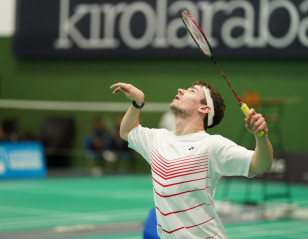
Spanish Para: Bethell Brings it Home for the Team 27 February 2023
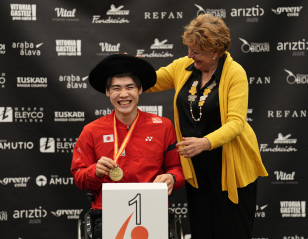
Spanish Para: Double Winner Kajiwara Keeping it Fun 27 February 2023
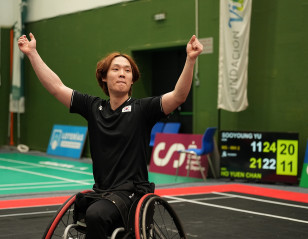
Spanish Para: Sooyoung So Good 26 February 2023
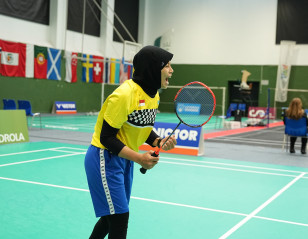
Spanish Para: My Time to Shine, Enthuses Ikhtiar 26 February 2023
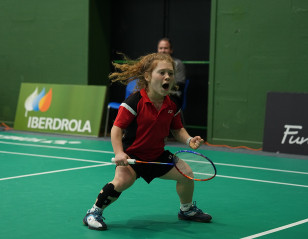
Spanish Para: ‘Anyone’s Playing Field’ 25 February 2023
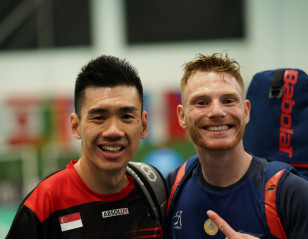
Spanish Para: It’s All Smiles for Loquette 24 February 2023
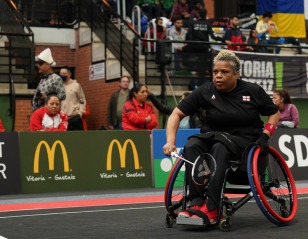
Spanish Para: Jones-Barnes Spreading the Joy of Badminton 23 February 2023
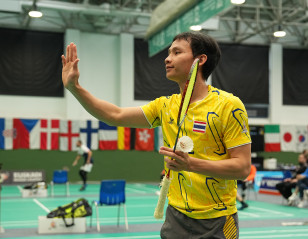
Spanish Para: Patience Key for Self Motivator Bunsun 23 February 2023
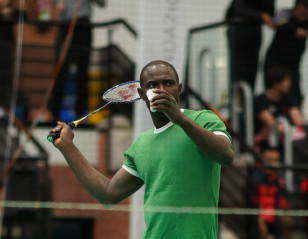
Spanish Para: ‘This One’s For You, Bello’ 22 February 2023
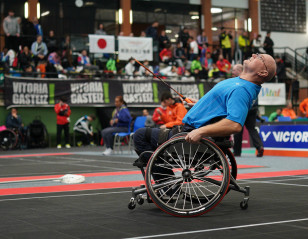
Spanish Para: New Season Brings New Faces 21 February 2023
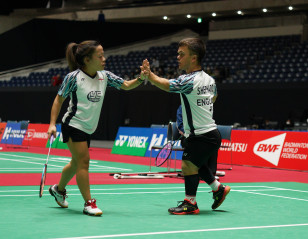
Para Shuttlers’ Road to Paris Begins in Spain 18 February 2023

Wandschneider/Hellman Chasing Fresh Records 4 January 2023

‘Extraordinary Year’ for Dual Paralympian Mathez 23 December 2022

Ticketing Opens for Paris 2024 13 December 2022

Para Badminton Events for 2023 Confirmed, Paris 2024 Journey Begins 26 November 2022
